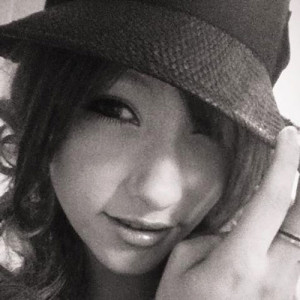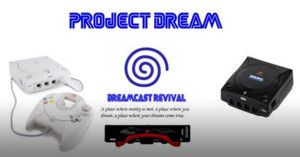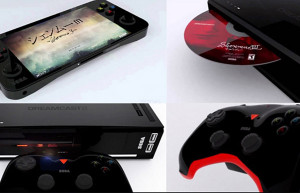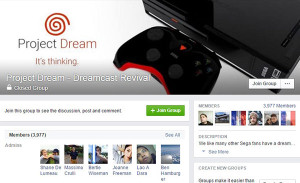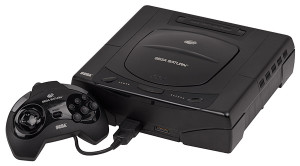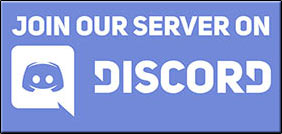Project Dream Q and A interview with Joanne Freeman
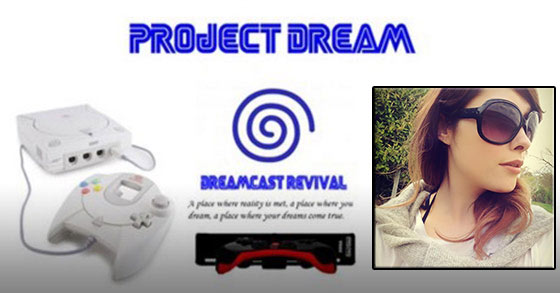
A lot of things have happened since my “Sega Dreamcast 2” article, my interview with Bertie Wiseman and Ben Plato, and the launch of the Project Dream homepage. Like the fact that more people are aware of the Project Dream campaign now, and I also got the chance to do an interview with Joanne Freeman (Gaming industry insider, translator, group moderator, research & development) just recently. So I took my chance and asked Freeman a lot of questions about Project Dream, the team and their plans for the future. However, before we jump to the part about the interview. This is the current team lineup for Project Dream:
The Dream team:
Bertie Wiseman
Website designer, group moderator, research & development, campaign management
Ben Plato
Group moderator, research & development.
Joanne Freeman
Gaming industry insider, translator, group moderator, research & development
Shane De Lumeau
Experience designer, user interface designer, user research, group moderator
With that said, please enjoy our interview with Joanne Freeman =)
Robin TGG
How does it feel now that the Project Dream homepage is live? And what has the reaction been from the rest of the team and the SEGA community so far?
Joanne Freeman
We still have a lot of work to do, and I want to have another look at some aspects of the site when I finish business over in Japan, but the overall response has been one of great positivity and united curiosity. I’m very happy with our progress.
Robin TGG
How did you get involved in the Project Dream team and campaign?
Joanne Freeman
I met Bertie Wiseman in the Facebook Shenmue 500k group, and he knew that I had localization experience in the games industry, contacts through my years in Japan and my IGDA membership. He knew I was a big Sega fan and asked me to cover translation, research and administrative duties.
Robin TGG
For how long have you known Bertie Wiseman, Ben Plato and Shane De Lumeau? And what´s your take on them? (their skills, talent and so on).
Joanne Freeman:
Everyone with us has a unique role and their own area of expertise. Ben Plato is the overall boss of the project. He knows what he wants design-wise and all final decisions are made by him. Bertie Wiseman is great at interacting with the project supporters through social media. He set up the twitter and also works on the site with Shane. Shane De Lumeau has a wealth of experience when it comes to user interfaces.
That’s his job and currently he is playing around with ideas for what could work on the system; if it weren’t for Shane, then our site wouldn’t be as good as it is. I am the link between Japanese and non-Japanese crowds, the industry contacts and the supporters. I will be overseeing translation, and I try to maintain the productive atmosphere of the team and of the supporters group as a mediator if and when opinions clash. We have a really good setup. I have known Bertie over a year, and he’s a truly determined and upbeat guy. Ben and Shane I met more recently, and I really don’t know what we’d do without them. The project is what it is because of the people.
We have some very experienced people working with us, and a few important industry members supporting us from behind the scenes. Whichever way this project goes, things are going to become very interesting indeed.
Robin TGG:
Do you have any idea about the design, price tag or specs for Project Dream? (if the console becomes a reality that is).
Joanne Freeman:
We are currently running through prototype designs and specs in order to satisfy the demands of long-time and newer fans. As for a price tag, we hope to minimize costs without sacrifice to the creation of a quality machine. It would be silly to careless say numbers, but I would like to see it cheaper than the current major consoles on the market.
Robin TGG
What would be the best and the worst possible scenario for Project Dream in your opinion?
Joanne Freeman:
The best scenario would of course be gaining the approval and support of Sega through our meticulously devised proposal, detailed plans and the generous support of Sega fans worldwide. There isn’t really a “worst-case scenario” in my opinion. I suppose a loss of support would be the most disconcerting thing to possibly happen; if we decide to create the console independently of Sega under a new name. People may deem that to be too ambitious, too long a wait, and they might choose to forget the whole affair. Hopefully though everyone is in for the long haul and we’ll have fun whichever route we take.
Robin TGG
What can you tell us about the Dreamcast Revival group on Facebook? What is it all about? And can anybody join the group?
Joanne Freeman:
Anyone can join the group. We post updates, ask questions and run polls; members are encouraged to share their console and games collection photos. We love reading people’s posts. It’s a feel-good corner of Facebook for everybody interested in what we are doing. Everyone is entitled to write their own opinions, and we do not tolerate political, religious, racial or social discrimination. Some members are more concerned with technical specifications whereas others have just joined with a sense of nostalgia and a pocket full of curiosity. It’s a lot of fun over there.
Robin TGG
Quite a few famous Youtube personalities (no names mentioned) were really doubtful once the Project Dream campaign became publicly known in December last year. What´s your thoughts on that? And what would you like to tell them (and others) who doesn´t believe in Project Dream?
Joanne Freeman:
To be honest we’re not particularly concerned with what YouTube personalities have to say. I for one can’t name a single online celebrity – but that’s just me – blissfully unaware! Anyone who has doubts is welcome to sit back and watch from a distance. We know what we’re capable of, and we hope to prove that to others. We, as a team, would like to tell them all to “watch this space”!
Robin TGG
Has SEGA said anything about Project Dream at this time? And has anyone of you been in contact with SEGA yet?
Joanne Freeman:
We’ve made contact, but the rest is for us to know and you to find out!
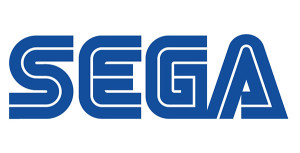
It´s going to be really interesting to see whether or not SEGA will pick up on the Project Dream campaign. However, it seems like SEGA are aware of the project at least.
Robin TGG
What are your relationship to SEGA? Did you grew up playing their games?
Joanne Freeman:
I grew up playing all kinds of video games with my father. After he left the military, he was a little bored in his free time, and it was a way for us to connect. We gamed together since the Amiga 500. When we got a Saturn, we were amazed by the graphics. Even playing the Tomb Raider demo disc (thanks Sega Saturn magazine!) it was such a thrill.
We spent hours on Shining the Holy Ark, the first RPG I ever remember playing alone, and I cried in the catacombs when a wraith appeared! I was always easily scared. The Dreamcast was our next console, and although we had an N64 too, but we always went back to Sega. Skies of Arcadia was a big part of my childhood. I loved that game! I think at one point I may have had a girl crush on Candy Vipers from Fighting Vipers, and Exhumed’s Hand of Ra is still a household meme today. We have always enjoyed video games in my family.
Robin TGG:
How has the reception been so far from the Gaming community and the games media? I mean, has the feedback been mostly positive or negative?
Joanne Freeman:
From online media, we have had a mixed barrage of opinions. Mostly, people think we are attempting the impossible. However, we have received much positive feedback from the gaming industry around the world, especially in Japan. I would say overall things a positive. People are either in camp A – good luck, even if you’re bound to fail, we like your idea; or camp B – supporting you all the way!
Robin TGG:
Does SEGA still have a lot of fans and support from Gamers in Asia? (in particular Gamers from Japan and South Korea). And has the Asian Games media said anything about Project Dream so far?
Joanne Freeman:
Korea has never been a console country and nowadays Koreans favor online play more than the home gaming experience. I’m sure there are Koreans who have never heard of Sega due to lack of exposure. In Japan, Sega is still well-known name. There are Sega arcade machines in Japanese arcades (yes, arcades are still a big thing in Japan!) and Sega titles releases for the Japanese market only and bigger following for titles less popular overseas. Japanese gamers are very loyal to their brands and don’t forget that Sega have a more to their name than just video games.
They have an animation studio, mobile games and toys under their belt too. If you include Ginza, Butterfly, Atlus etc. and the wealth of other subsidiary companies under Sega Sammy Holdings, they have everything from staffing and HR solutions to Pachinko machines and business management software development. Don’t get bogged down with thinking Sega hasn’t done anything in years just because their influence is less noticeable outside of Japan.
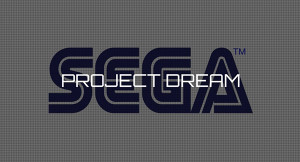
It´s going to take a lot of hard work and determination to make the Project Dream campaign successful.
Robin TGG:
People have been asking me about how they can support Project Dream the best, what would your advice be?
Joanne Freeman:
Sign the petition, join the group, follow the twitter and spread the word. If you have a language or an industry skill, then send us a mail through our site. We want supporters to have faith in the project and understand the possible outcomes. It’s really exciting time to be doing something like this with the freedom social media gives us to connect and share our ideas with others.
We want you guys to be a part of it!
Robin TGG
Last question now. What does the time schedule look like for Project Dream right now? (Milestones and subgoals in terms of time).
Joanne Freeman:
We hope to have our written proposal ready in the few two-three weeks and everything else is dependent on that.
![]()
Robin “V-Act” Ek
The Gaming Ground
Twitter: @TheGamingGround
More by Robin Ek:
- The realistic survival game “The Last Plague: Blight” is coming to Steam EA on October 3rd, 2024
- “Final Fantasy Pixel Remaster Anniversary Edition” is coming physically to consoles on October 8th, 2024
- The single-button boss rush game “ONE BTN BOSSES” is now available for PC via Steam
- The unique viking base builder/roguelite/strategy game “Landnama” is now available for consoles
- The full version of “MARS 2120” is now available for PC and consoles
Tags: Dreamcast 2, Joanne Freeman, Joanne Freeman interview, Project Dream, SEGA



